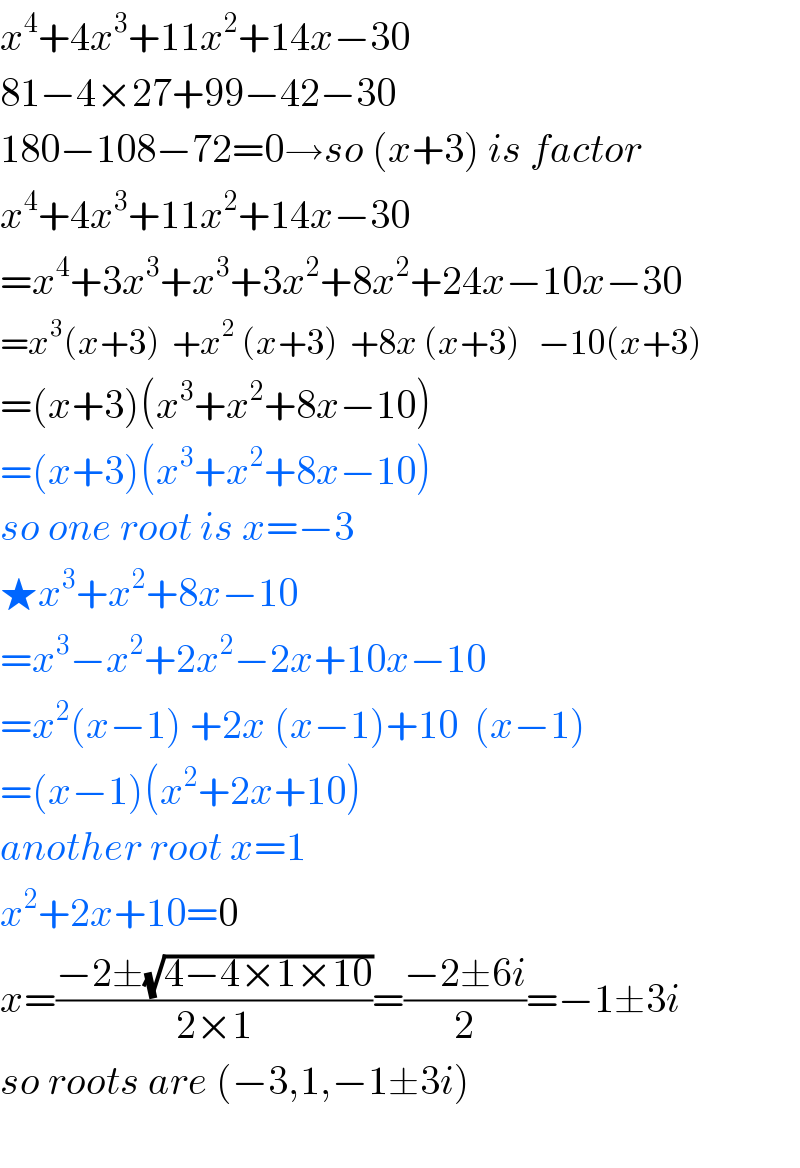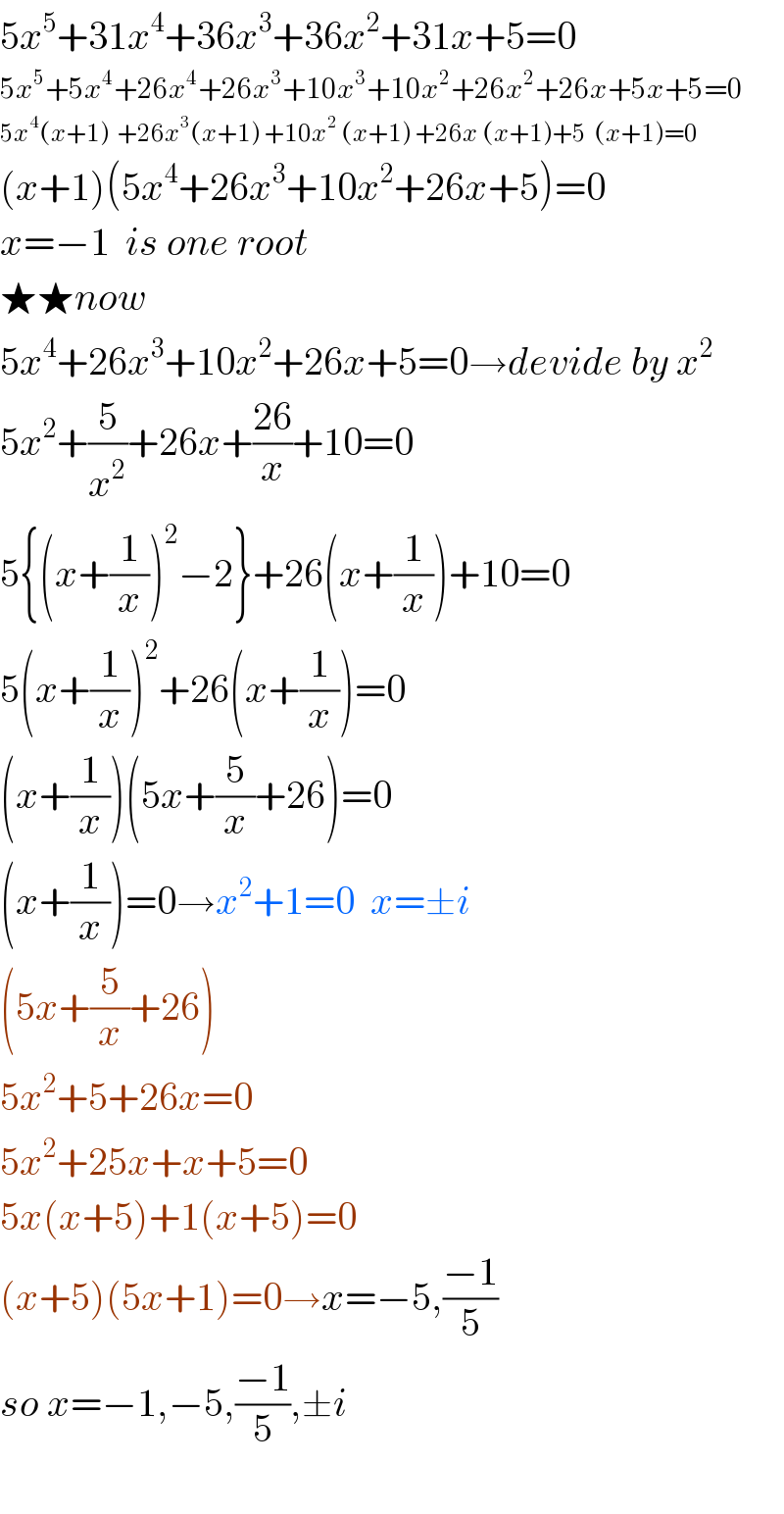
Question and Answers Forum
Question Number 115597 by aurpeyz last updated on 26/Sep/20

Answered by 1549442205PVT last updated on 27/Sep/20

Answered by TANMAY PANACEA last updated on 27/Sep/20

Answered by aurpeyz last updated on 26/Sep/20

Answered by TANMAY PANACEA last updated on 27/Sep/20

